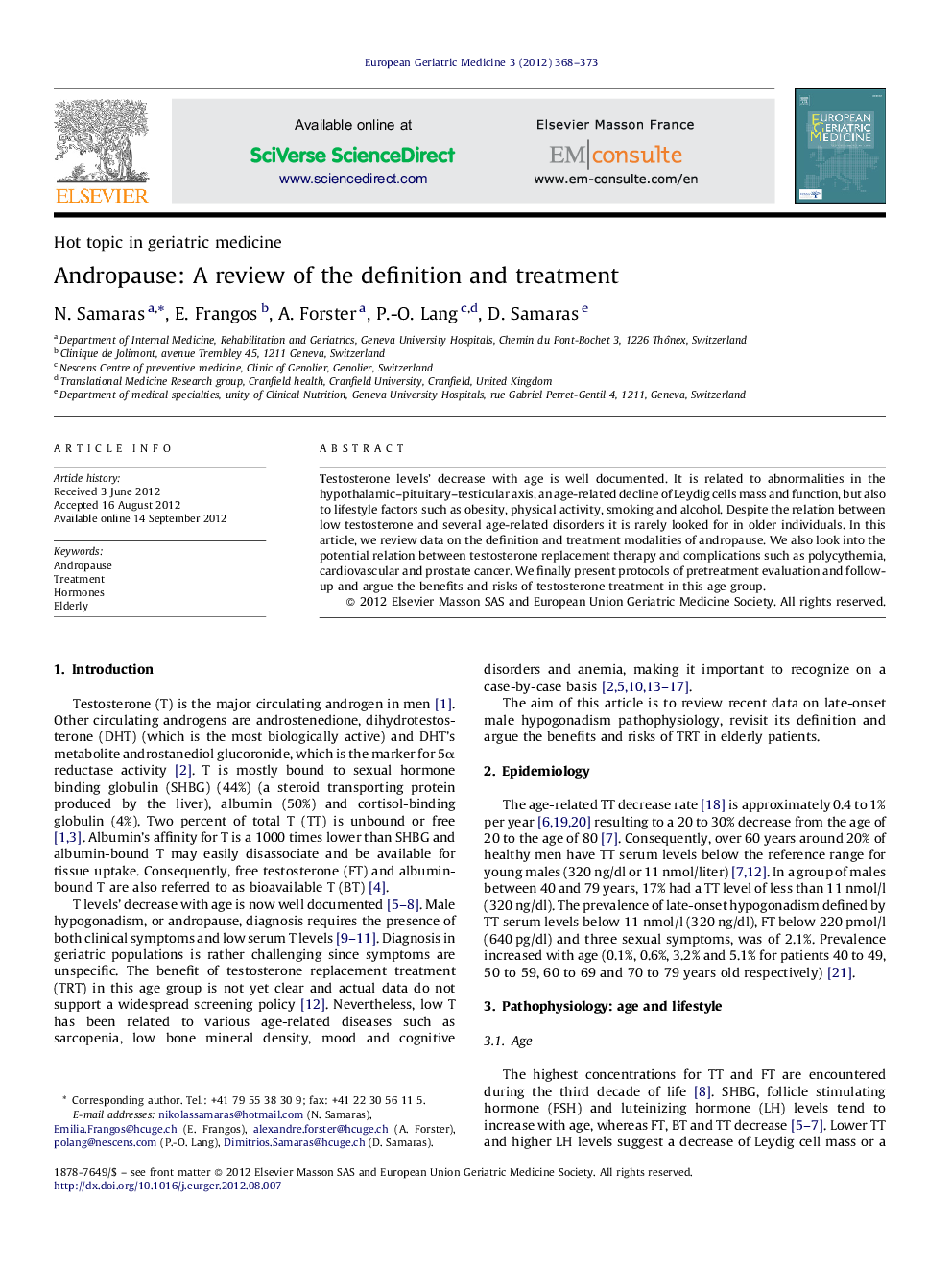| Article ID | Journal | Published Year | Pages | File Type |
|---|---|---|---|---|
| 3324819 | European Geriatric Medicine | 2012 | 6 Pages |
Testosterone levels’ decrease with age is well documented. It is related to abnormalities in the hypothalamic–pituitary–testicular axis, an age-related decline of Leydig cells mass and function, but also to lifestyle factors such as obesity, physical activity, smoking and alcohol. Despite the relation between low testosterone and several age-related disorders it is rarely looked for in older individuals. In this article, we review data on the definition and treatment modalities of andropause. We also look into the potential relation between testosterone replacement therapy and complications such as polycythemia, cardiovascular and prostate cancer. We finally present protocols of pretreatment evaluation and follow-up and argue the benefits and risks of testosterone treatment in this age group.
